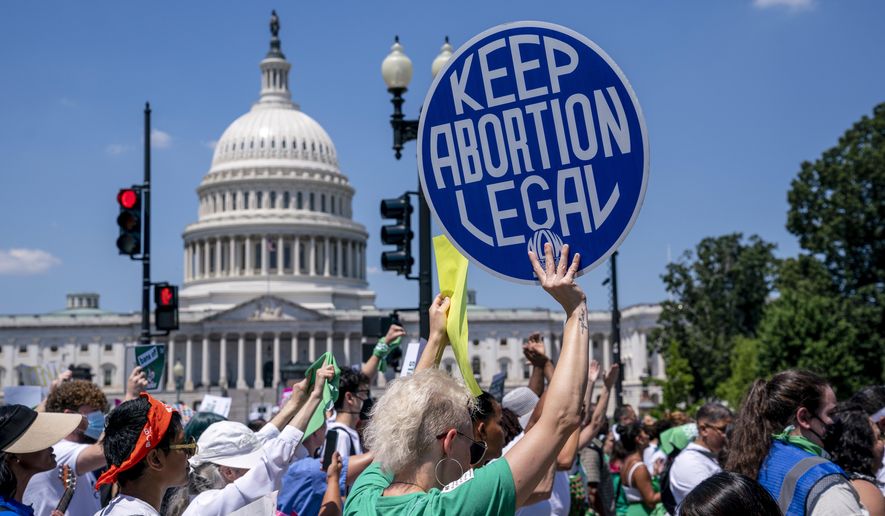Courts are delivering mixed rulings on pro-life laws after the Supreme Court upended Roe v. Wade last month, signaling that abortion jurisprudence will be unclear for the foreseeable future.
A Louisiana court and a Kentucky court have blocked near-total bans on abortion from taking effect while litigation continues.
The moves to allow abortions in those states contrast with a ruling by the 11th U.S. Circuit Court of Appeals upholding Georgia’s ban on the procedure after six weeks of pregnancy.
Lois Shepherd, a health and law professor at the University of Virginia, said abortion jurisprudence will be “unclear for years” after the Supreme Court’s decision in Dobbs v. Jackson Women’s Health Organization. The ruling overturned women’s national right to abortion and sent the issue back to state legislatures.
“If the Supreme Court majority thought that Dobbs would put an end to the decades of litigation on abortion, they were completely wrong. They’ve opened up a can of worms,” she said.
Lower federal and state courts are now grappling with old and new state laws that ban or severely restrict abortion.
The rulings, even in conservative states, have not always been in favor of pro-life advocates.
In West Virginia, a judge has refused to allow a more than century-old ban on abortions from taking effect, reasoning that more modern regulations have been enacted. State Attorney General Patrick Morrisey appealed that decision last week.
In Florida, a judge blocked a ban on abortion after 15 weeks, reasoning that it ran afoul of a provision in the state constitution that protects residents from government intrusion into personal lives.
Ms. Shepherd said courts will have to evaluate various laws to ensure they don’t run afoul of state constitutions. Federal cases will involve the right to travel to another state for an abortion.
Since the Supreme Court overturned the 1973 Roe v. Wade decision that gave women a national right to an abortion, states where Republicans control the legislatures have moved to pass bills to severely restrict access to the procedure.
The Dobbs decision upheld a ban on abortion after 15 weeks in Mississippi and sent abortion regulation back to states while upending decades of abortion jurisprudence.
The Associated Press reported that clinics stopped performing abortions in 12 states, either because of bans or conflicting laws on the procedure.
Those states are Alabama, Arizona, Arkansas, Georgia, Missouri, Mississippi, South Dakota, Oklahoma, Wisconsin, Wyoming, Texas and Tennessee.
Penny Nance, CEO and president of Concerned Women for America, said the pro-life movement is ready to take its legal battles to the states.
“Unfortunately, activist judges did not go away with Roe. So, yes, we expect some of them will find all kinds of creative ways to circumvent the law and delay the implementation of the will of the more than 70% of Americans who want to place strict restrictions on abortion. The good news is that they no longer have the cover of the United States Supreme Court to hide under and they are going to have to work at convincing others, but they will be exposed in their extremism,” she said.
• Alex Swoyer can be reached at aswoyer@washingtontimes.com.




Please read our comment policy before commenting.